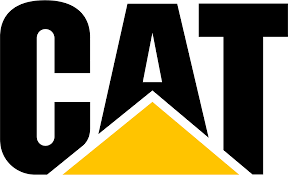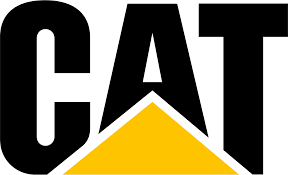This website explains how to replace Replacing 3516B and 3516B High Displacement Engines ECM
12.2021 CaterpillarECM ECU Flash Files Full Set Download
NOTICE:
Care must be taken to ensure that fluids are contained during performance of inspection, maintenance, test-
ing, adjusting and repair of the product. Be prepared to collect the fluid with suitable containers before open-
ing any compartment or disassembling any compo-
nent containing fluids.
Refer to Special Publication, NENG2500, “Caterpillar Dealer Service Tool Catalog”for tools and supplies suitable to collect and contain fluids on Caterpillar products.
Dispose of all fluids according to local regulations and mandates.
NOTICE:
Keep all parts clean from contaminants.
Contaminants may cause rapid wear and shortened component life.
The Electronic Control Module (ECM) contains no moving parts. Replacement of the ECM can be costly. Replacement can also be a time consuming task. Follow the troubleshooting procedures in this manual in order to be sure that replacing the ECM will correct the problem. Verify that the suspect ECM is the cause of the problem.
Note: Ensure that the ECM is receiving power and that the ECM is properly wired to the negative battery circuit before a replacement of the ECM is attempted.
Refer to Troubleshooting, “Electrical Power Supply”.
NOTICE: If the flash file and engine application are not matched, engine damage may result.
Perform the following procedure in order to replace the ECM.
1. Record the configuration data: a. Connect Caterpillar Electronic Technician (ET)
to the service tool connector for the engine.
b. Print the parameters from the “Configuration”
screen on Cat ET. If a printer is unavailable, record all of the parameters. Record anylogged diagnostic codes and logged event codes for your records. Record the injector trim codes from the “Calibrations”screen in the
“Service”menu on Cat ET.
Note: The injector trim code is a number that is found on each of the unit injectors. The ECM uses this number to compensate for manufacturing variations between individual injectors. If you replace any ofthe unit injectors, you must reprogram the injector trim code for the new injectors. Also, if you replace the ECM, you must reprogram all of the injector trim codes.
c. Copy the settings for the engine monitoring system. Refer to Troubleshooting, “Event Code List”.
d. Use the “Copy Configuration/ECM Replacement”feature that is found under the
“Service”menu on Cat ET. Select “Load from ECM”in order to copy the configuration data from the suspect ECM.
Note: If the “Copy Configuration”process fails and the parameters were not obtained in Step 1.b, the parameters must be obtained elsewhere. Some of the parameters are stamped on the engine information plate. Most of the parameters must be obtained from the factory.
Caterpillar ET 2024A & 2023C & 2019C Electronic Technician Diagnostic Software Download and Installation
2. Remove the ECM.
a. Remove electrical power from the ECM.
b. Disconnect the ECM connectors J1/P1 and
NOTICE: Use a suitable container to catch any fuel that might spill. Clean up any spilled fuel immediately.
NOTICE: Do not allow dirt to enter the fuel system. Thoroughly clean the area around a fuel system component that will be disconnected. Fit a suitable cover over discon-
nected fuel system component.
c. Remove the fuel lines from the ECM (if equipped).
d. Remove the mounting bolts from the ECM.
e. Disconnect the ECM ground strap from the engine.
3. Install the replacement ECM.
a. Use the old mounting hardware to install the replacement ECM. The mounting hardware should be free of damage.
b. Reconnect the fuel lines (if equipped).
c. Ensure that the ECM mounting hardware is installed correctly. The fuel lines should not be putting tension on the ECM. The rubbergrommets are used to protect the ECM from excessive vibration. The ECM should be ableto drift in the rubber grommets. If the ECM cannot be moved slightly in the grommets, check that the fuel lines are not pulling the ECM against one side of the grommets.
d. Install the ECM ground strap on the engine.
e. Connect the P1 and P2 connectors. Tightenthe allen head screws for each ECM connector to the proper torque. Refer to Troubleshooting,
“Inspecting Electrical Connectors”for the a.
4. Restore electrical power to the ECM.
5. Configure the replacement ECM:
a. Flash program the flash file into the ECM. Refer to Troubleshooting, “Flash Programming”
fthcreprc.
b. Use Cat ET to match the engine applicationand the interlock code if the replacement ECM was used for a different application.
CAT Caterpillar ET 3 Diagnostic Adapter 317-7485/478-0235 Diagnostic Tool-high quality
c. If the “Copy Configuration”process from Step 1.b was successful, return to the “Copy Configuration/ECM Replacement”screen on Cat ET and select “Program ECM”.
d. Reprogram the injector trim codes. The injector trim codes are not part of the “Configuration”screen on Caterpillar Electronic Technician
(ET). “Injector Codes Calibration”can be found under “Calibrations”in the “Service”menu on Cat ET. Proceed to Step 5.d.
e. If the “Copy Configuration”process from Step
1.b was unsuccessful, manually program the ECM parameters. The parameters must match the parameters from Step 1.b.
f. If necessary, program the engine monitoring system. Refer to Troubleshooting, “Event Code List”.
g. Calibrate the engine speed/timing. Refer to Troubleshooting, “Engine Speed/Timing Sensor -Calibrate”.


